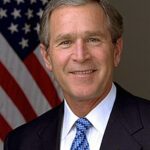President Bush launched the President’s Malaria Initiative (PMI) in 2005 as America’s largest health program. The malaria initiative targeted 15 sub-Saharan African countries where the disease killed over one million people annually. 📊 Initial funding totaled $1.2 billion over five years, later expanding to over $6 billion.
The Decision Behind Global Health Investment
Bush announced the malaria initiative during his 2005 State of the Union address. The decision reflected growing bipartisan support for global health programs. Congress had already approved PEPFAR for HIV/AIDS treatment in Africa. The malaria initiative built upon this humanitarian foundation with specific disease-focused funding.
Implementation Strategy and Prevention Programs
The PMI focused on four core interventions proven to reduce malaria deaths. 💰 Funding supported insecticide-treated bed nets distributed to vulnerable families. The initiative also provided antimalarial medications and indoor residual spraying programs. Pregnant women received preventive treatment to protect mothers and babies from infection.
Impact:
The malaria initiative achieved remarkable success in reducing disease burden across Africa. 📉 Malaria deaths dropped by over 60% in target countries between 2005 and 2015. The program distributed more than 200 million bed nets to protect families. Over 15 million children and pregnant women received life-saving antimalarial treatments annually.
Humanitarian Impact and Lives Saved
Scientists estimate the malaria initiative prevented millions of deaths during its first decade. The program particularly benefited children under five who faced highest mortality risks. Pregnant women also experienced dramatically reduced maternal and infant deaths. 🌍 The initiative demonstrated American leadership in global health diplomacy.
Long-term Health System Strengthening
Beyond immediate interventions, the malaria initiative built healthcare infrastructure across Africa. The program trained thousands of community health workers in prevention methods. Local health systems gained capacity for disease surveillance and outbreak response. These investments created lasting improvements in public health capabilities.
Bipartisan Legacy and Continued Success
The malaria initiative enjoyed strong bipartisan congressional support throughout multiple administrations. Both Democratic and Republican leaders praised the program’s measurable results and humanitarian impact. The initiative continued expanding under Obama and Trump administrations, reaching additional countries.
